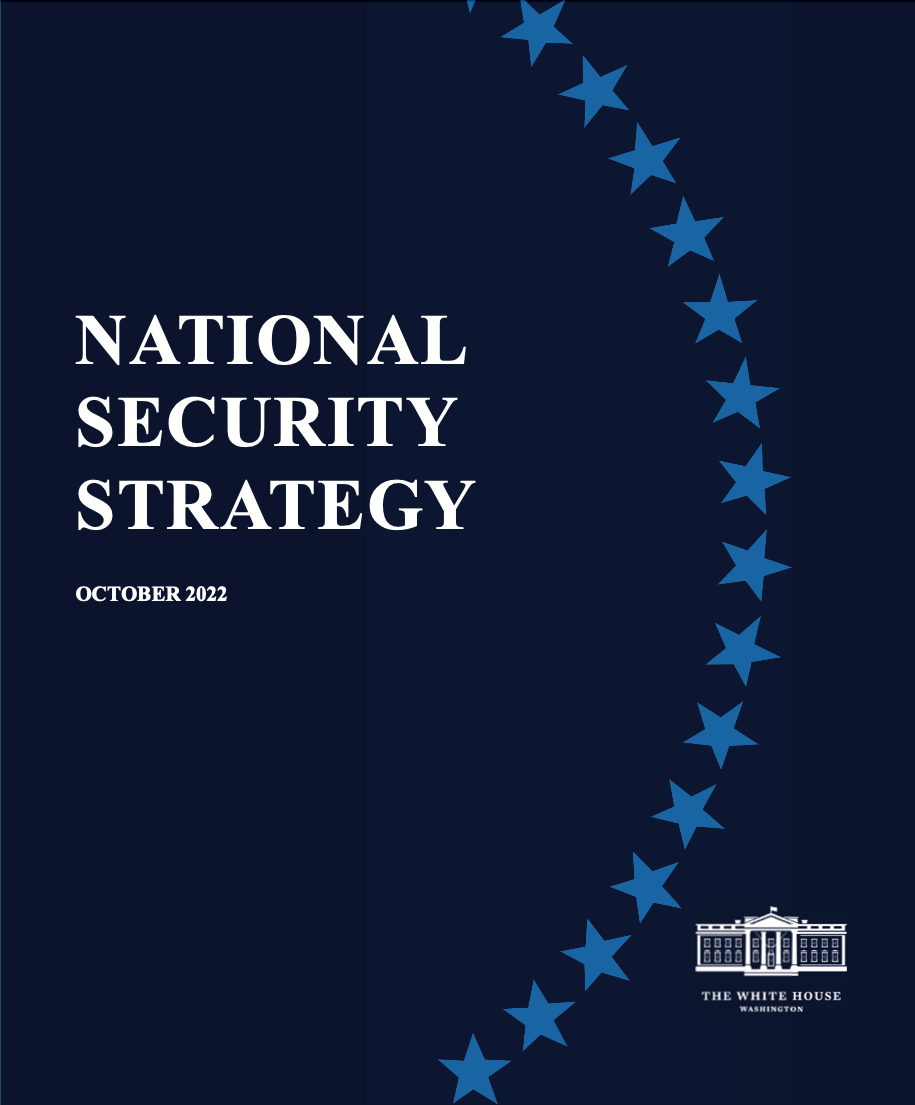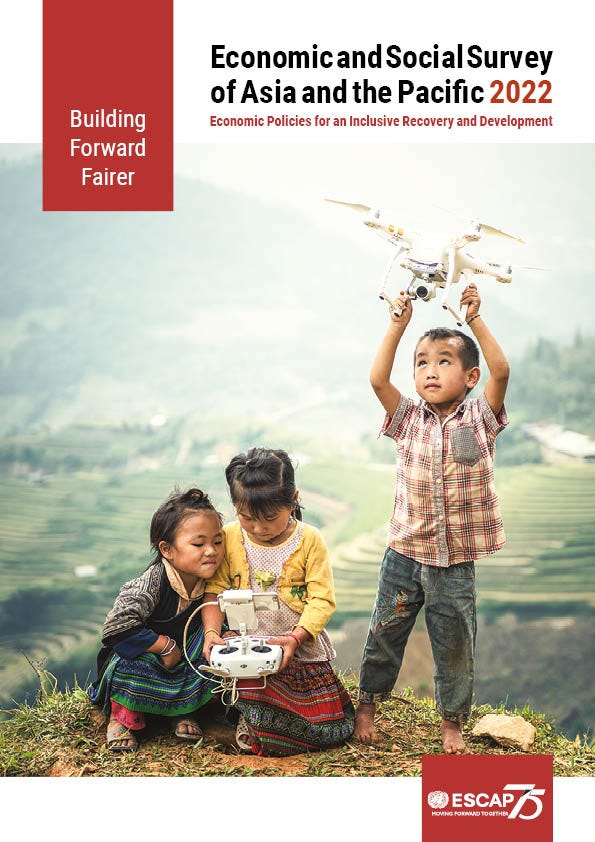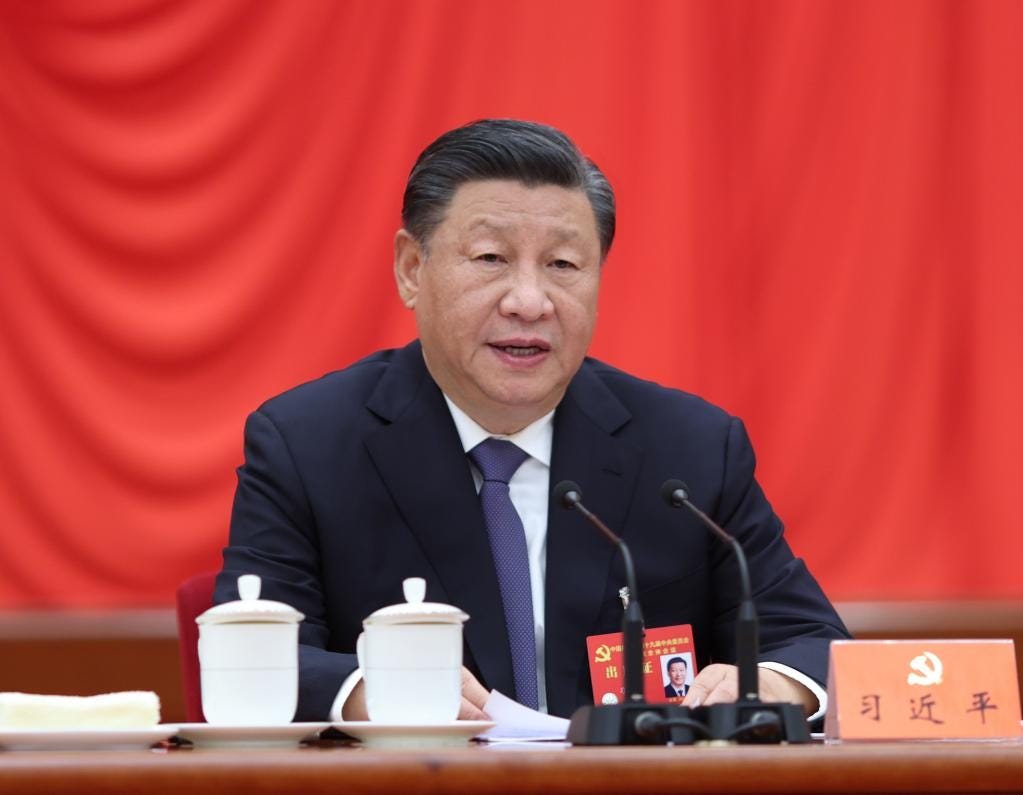USA versus Global Growth
The US security strategy is designed to maim Russia and stunt China but no global growth is the price for US leadership
UPDATE: All eyes are on Beijing this weekend as delegates arrive for the CPC (Communist Party of China) 20th session. Meanwhile, the Whitehouse has released its National Security Strategy confirming that US security and economic policy, which primarily targets Russia and China, continues to drive down global growth, export inflation and increase global poverty. The Long Mekong Weekend looks at the disturbing Whitehouse security strategy, the sober, if not worrying, reports on the Asia-Pacific from the IMF and UNESCAP (UN Economic and Social Commission for Asia and the Pacific) Survey and the pragmatic 7th Plenary of the CPC. The 20th CPC Session this weekend will provide insight into how not only China, but the Global South, can respond, reject, resist or retaliate over a militarily, diplomatically and economically offensive US national security strategy.
NB: The Long Mekong Weekend is brought to you in partnership with the International Relations Institute of Cambodia (IRIC).
Asia-Pacific Headwinds says IMF
The three risks flagged at the time of the IMF spring meetings have materialised, and now present significant headwinds to the outlook for Asia. First, there has been a significant tightening of global financial conditions, which is raising government borrowing costs and depreciating Asia’s currencies. Second, the war in Ukraine has dragged on, provoking a sharp slowdown in Europe and keeping global commodity prices high and volatile. Third, the Chinese economy is experiencing an uncharacteristic and sharp slowdown in growth which, in turn, is weakening momentum in countries in the neighbourhood and globally.
Growth forecasts for Asia and Pacific are being downgraded by 0.9 percentage points in 2022 and 0.7 percentage points in 2023. So, growth in 2022 and 2023 is projected at 4.0 and 4.3 percent, respectively. While this rate of growth is much lower than the 5.5 average growth enjoyed over the previous two decades, the region continues to perform better than the rest of the global economy.
The global conjecture is sobering, with uncertainty and risks remaining elevated, and policymakers have to contend with numerous challenges and policy tradeoffs. The IMF is advising member countries in Asia to set policies prudently. IMF advice for most of the region is for monetary policy to continue tightening, and for fiscal consolidation to continue. China and Japan are exceptions, where the recovery has been weaker, slack remains substantial, inflation has not risen as sharply as elsewhere, and policy space exists. Read the full report here
Why does the US need to win the 21st century ?
Joseph Biden argues that the world is at an inflection point and needs American leadership. The 2022 National Security Strategy outlines how his administration will advance America’s vital interests and position the United States to outmanoeuvre its geopolitical competitors, Russia and China, to shape the future of the international order. The United States will not leave its future vulnerable to the whims of those who do not share our vision
The People’s Republic of China harbours the intention and, increasingly, the capacity to reshape the international order in favour of one that tilts the global playing field to its benefit. Russia’s brutal and unprovoked war on its neighbour Ukraine has shattered peace in Europe and impacted stability everywhere, and its reckless nuclear threats endanger the global non-proliferation regime. Autocrats are working overtime to undermine democracy and export a model of governance marked by repression at home and coercion abroad.
The United States is strong abroad because we are strong at home. Our economy is dynamic. Our military remains unmatched—and we will keep it that way.
So, the United States will partner with any nation that shares our basic belief that the rules-based order must remain the foundation for global peace and prosperity. The United States has everything we need to win the competition for the 21st century. Read the full US national security strategy here
UNESCAP reports poverty is increasing, inequalities are widening
After two years of the COVID-19 pandemic, poverty is increasing, inequalities are widening, and daily life is becoming a growing struggle across every society – especially for those already on the social and economic margins. In the Asia-Pacific region, more than 820 million workers in the informal economy and over 70 million children in low-income households have been hit hard by the pandemic’s sweeping economic impacts. In 2021 alone, an additional 85 million people were pushed into extreme poverty. Economic recovery, along with the core promise of the Sustainable Development Goals to “leave no one behind,” are fast slipping beyond reach. As the countries of Asia and the Pacific look to recovery prospects, they face fiscal constraints and difficult budgetary decisions.
The Economic and Social Survey of Asia and the Pacific 2022 makes a strong case that now is the time for more investment and spending, not less.
Spurring sustainable recovery and development while countering rising inequalities across the region demands increased and inclusive spending to support human development. This includes strengthening health care, education, food systems and universal social protection. It also includes bold investments in job creation, the green transition, gender equality and opportunities for youth. To help Governments make these urgent and necessary investments, the Survey offers a detailed blueprint to reorient fiscal and monetary policymaking, regulatory frameworks, and economic transformation processes across the region to ensure that all people are supported equally. Read the full UNESCAP Survey here
CPC 20th Session Communique
The 19th Central Committee of the Communist Party of China concluded its seventh plenary session in Beijing on Oct 12 with a communique issued. (Adopted at the Seventh Plenary Session of the 19th Central Committee of the Communist Party of China on Oct 12, 2022). The 19th Central Committee of the Communist Party of China (CPC) convened its seventh plenary session in Beijing from Oct 9 to 12, 2022.
A total of 199 members and 159 alternate members of the CPC Central Committee attended the session. Members of the CPC Central Commission for Discipline Inspection (CCDI) and leading officials of related departments were present in a non-voting capacity. The Political Bureau of the CPC Central Committee presided over the session. General Secretary of the CPC Central Committee Xi Jinping delivered an important speech. It was decided at the session that the Party will convene its 20th National Congress in Beijing on Oct 16, 2022.
At the session, the Central Committee heard and discussed the report on the work of the Political Bureau, presented by Xi Jinping, who was entrusted by the Political Bureau. It also discussed and adopted a report by the 19th CPC Central Committee to be delivered at the 20th CPC National Congress, as well as a work report of the 19th CPC CCDI to the congress, and an amendment to the Party Constitution. It was decided at the session that the three documents will be submitted to the 20th CPC National Congress for examination and deliberation. Xi Jinping delivered explanatory remarks on the draft report of the 19th CPC Central Committee to the 20th CPC National Congress, and Wang Huning made explanatory remarks on the draft amendment to the Party Constitution. Read Full 20th Session Communique here







